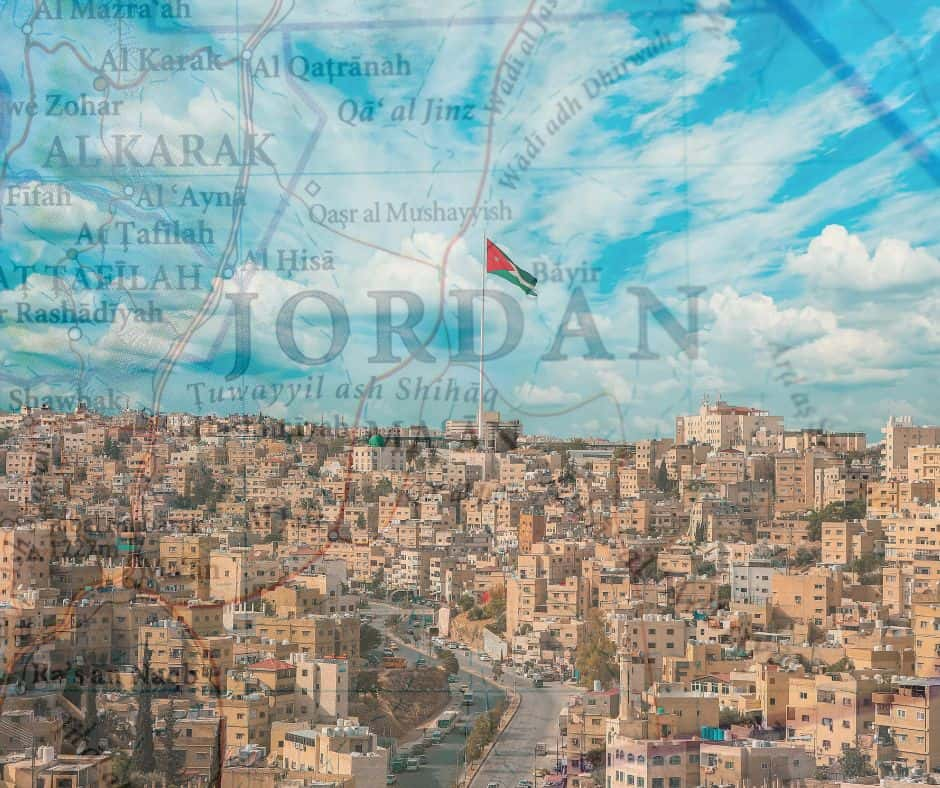
What is the Groningen Declaration Network (GDN)?
Blog by Margaret Wenger, our Senior Director of Evaluation at Educational Credential Evaluators (ECE). Her primary responsibilities lie with evaluation policy development and quality assurance efforts.
Jetting off to Jordan
From October 14-16, 2023, the Groningen Declaration Network (GDN) held their annual meeting in Amman, Jordan. The GDN is a network of organizations and individuals who share the common goal of promoting the use of digital student data to help support learner mobility, with the annual meeting an opportunity for signatories and other stakeholders to come together to share best practices, discuss technical standards, and build relationships. I was honored to participate in the meeting both as a member of the board of directors as well as a presenter. We started off with a reception Monday evening, then got down to business with warm welcomes from our hosts and inspiring keynotes speeches from Wesley Teter (Senior Consultant, Educational Innovation and Skills Development, (EISD) UNESCO Multisectoral Regional Office, Bangkok) and Julie Reddy (Professor of Practice, University of Johannesburg, South Africa & Deputy Chair of South Africa National Commission of UNESCO).
Breakout sessions & networking
The GDN annual meeting format was a combination of plenary and breakout sessions. Nearly all the sessions related in some way to the promotion of student mobility while ensuring the use of authentic documents, whether from an institutional, database, credential evaluation, learner support, or other stakeholder perspective. As we gathered with the backdrop of terrible conflict unfolding nearby, we continue to be inspired by the goals of the GDN – the mutual exchange of information and cooperation among the various participants to support learners and their ability to use their educational achievements as they wish.
In addition to Wesley’s call for a new social contract for education and Julie’s appeal for stronger support for non-formal learning, several other sessions stood out for me, including some focusing on digital credentials in support of refugees. Others focused on the key role of digitization of credentials in ensuring academic integrity. I presented with my colleague Aleks Morawski (Director, Scholaro) on the position paper written by the Working Group on Digital Delivery of Credential Evaluations calling for HEIs to accept credential evaluation reports digitally. Another theme was interoperability – whether it be technical or semantic, the idea that multiple systems, institutions, and databases can effectively communicate. Throughout nearly every presentation was the common theme of learner centricity. An exciting development is the creation of an “Arab Student Clearinghouse” – an effort by the Association of Arab Universities to establish a depository for credentials from institutions in Arab countries to protect the “integrity, truthfulness and accuracy” of the certificates and diplomas they issue. It will also serve as a way for receivers of credentials such as other institutions and credential evaluators to verify documents. Most importantly, it preserves learners’ credentials in a digital format so that they can access them in the event of war, natural disasters, and other crises that inhibit access to verifiable credentials.
No conference in 2023 would be complete without a session on Artificial Intelligence; in this case, an excellent panel discussion led by Rick Torres of the National Student Clearinghouse. In this session, the focus was on ways of using AI to advance learner mobility, with insightful discussion around issues such as ethics, standards, and trust.
As always, the informal events were wonderful opportunities for networking and relaxation. The participants were given the chance to travel to Jerash to tour the site of the ancient Roman city. Despite not being able to visit Irbid as planned, the meeting was wonderfully hosted by the Jordan University of Science and Technology. Mid-October is the time of year to harvest olives in Jordan, and they were plentiful.
Mindful of our mission
I was reminded, as I am at every GDN meeting, of the synergy between the goals of the GDN and our own mission at Educational Credential Evaluators (ECE). See the full text of the Groningen Declaration here. One of the most rewarding things about being a GDN signatory and participating in its events is the way in which various sectors of international learner mobility come together to share best practices and multiple perspectives.
As we are all keenly aware, the work we do cannot and should not be separated from what is going on around us. The conflict unfolding in the Middle East as we were meeting in Amman was on the minds of all attendees, and we know that our work as stakeholders in international education is vitally important. Now, more than ever, we need to find ways to support refugee and other learner mobility by providing accessible resources for digital student data and credential evaluations so that they can use their educational achievements to promote their own and society’s betterment.

Ancient ruins of Jerash, photograph by Margaret Wenger

Freshly cropped olives in Jordan, photograph by Margaret Wenger